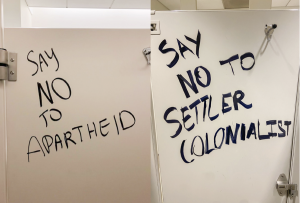Data Gathering for NSSE Begins
March 10, 2008
In order to better serve student at UMass Boston, administrators and school officials must first find out who their students are. One of the key weapons in this constant battle for information is the National Survey of Student Engagement (NSSE), a survey used by schools across the country to gather more information on students and how they live their lives. Many in the university are very excited, as this spring the new NSSE survey will be compiled and its bountiful yield of data will be broken down into usable pieces of information for next fall.
NSSE was born about ten years ago by an institution in Indiana that wanted to develop a system for measuring a college’s success outside of the typical factors, such as average SATs and endowment size. This informational snapshot is designed for more mainstream higher education institutes and does not account for smaller, public universities like UMass Boston. The other problem with traditional methods is that they rely, to a certain degree, on testimonials from university presidents and other high-ranking officials, whose objectivity may be affected by any number of factors. Thus, NSSE was conceived and counted UMB among its pilot members when the program launched in 1999.
NSSE is very unique compared to most survey methods in terms of the criteria that are asked of the participants. As described by Associate Director of Institutional Research Kevin Murphy, NSSE is “built on the kind of things students ‘do,'” as opposed to a lot of other similar surveys which focus on what students “are.”
Participating students are asked questions that try to pinpoint how they spend their time over the course of the week, as well as the overall quality of their academic lives. Included in the survey are questions pertaining to how much time students spend working together in and out of class, how much time they spend with faculty and how well they communicate with faculty.
As Murphy points out, however, a student’s academic experience, especially at an urban commuter college like UMass Boston, is not completely confined to the campus. In order to better understand students’ regular lives, the survey also tries to ascertain how students spend their time outside of the classroom. Included are questions that try to determine how many hours in an average week students spend on things like class work, working at a job, taking care of family members and socializing.
One of the most interesting things that has been revealed in the most recent round of NSSE surveys, taken in 2006, is the exceptional academic experience had by first-time students. “One of the things that’s most interesting is that our first year students are particularly well-served by their relationships with faculty,” Murphy noted. “I think that’s because of the way we’re constructed; there are very few classes where there are 300 students in a class. You could come walking in as a freshman and be in a class with twenty-five students and a full professor, and you just don’t have that at a lot of places.” Murphy went on to point out that first-year students at UMB also placed far above the average in terms of talking about readings or ideas with faculty members outside of class.
The participants in the survey are all seniors and first-time students, and in order for the survey to be effective, the University is taking many steps and creating a myriad of incentives to get students to participate. In the past, the sample size for this survey has been in the vicinity of 700 participants, although Murphy hopes that now that it is web-based that number should spike dramatically. “We’re hoping for around 3,000 this time around,” Murphy explained.
NSSE will be gathering data from students throughout all of the spring semester and Student Life will be aiding in the recruitment effort. Seniors and freshman are being reminded to keep their eyes open because in the next couple weeks, various kiosks, tables and information desks will be set up throughout the campus in order to facilitate participation in the survey. There will also be numerous contests and prize giveaways as an extra incentive to set aside the short time it takes to fill out the survey, although the reward of making a contribution to the rich tapestry that is UMass Boston should suffice.










































































